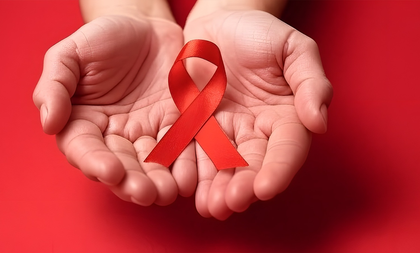Australia reports decline in HIV, surge in common STIs
By IANS | Updated: September 15, 2025 18:15 IST2025-09-15T18:14:20+5:302025-09-15T18:15:25+5:30
Canberra, Sep 15 Australia's 2024 sexual health report shows a concerning rise in common sexually transmitted infections (STIs) ...

Australia reports decline in HIV, surge in common STIs
Canberra, Sep 15 Australia's 2024 sexual health report shows a concerning rise in common sexually transmitted infections (STIs) alongside a decline in human immunodeficiency virus (HIV) diagnoses.
Over the past decade, syphilis and gonorrhea cases more than doubled, with 5,866 and 44,210 diagnoses, respectively, in 2024, according to Australia's 2024 Sexual Health Check-up released Monday by the University of New South Wales' Kirby Institute.
The new national surveillance data, released at the Australasian HIV&AIDS Conference in Adelaide, revealed significant gaps in sexual health testing alongside a sharp increase in syphilis and gonorrhea cases over the past decade.
Syphilis cases among women quadrupled, raising serious concerns about congenital syphilis, which has more than doubled since 2015 and caused 34 infant deaths, disproportionately affecting Indigenous Australians, the report said.
"
Chlamydia remains Australia's most common STI, with 101,742 diagnoses in 2024, particularly affecting people aged 20-29. Despite rising STI rates, only 16 per cent of Australians aged 16-49 have ever been tested for an STI, statistics show.
According to the report, HIV diagnoses declined by 27 per cent over the past decade to 757 cases in 2024. However, a slight increase in recent years highlighted the need to sustain efforts towards Australia's virtual elimination goal by 2030, Xinhua news agency reported.
Almost one-third of HIV diagnoses in 2024 were late, meaning patients may have lived with HIV for at least four years without knowing, highlighting the urgent need for more accessible testing, including self-testing, it added.
HIV is an STI that can progress to a disease called acquired immunodeficiency syndrome (AIDS) when it is untreated. STIs can increase the risk of HIV transmission to or from other people, often due to sores or small tears in the skin that can cause exposure to the virus.
Disclaimer: This post has been auto-published from an agency feed without any modifications to the text and has not been reviewed by an editor
Open in app